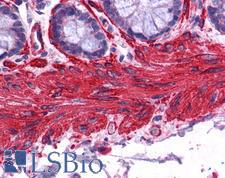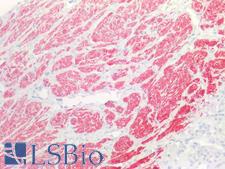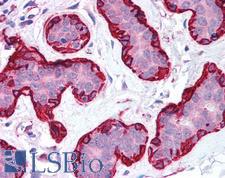Login
Registration enables users to use special features of this website, such as past
order histories, retained contact details for faster checkout, review submissions, and special promotions.
order histories, retained contact details for faster checkout, review submissions, and special promotions.
Forgot password?
Registration enables users to use special features of this website, such as past
order histories, retained contact details for faster checkout, review submissions, and special promotions.
order histories, retained contact details for faster checkout, review submissions, and special promotions.
Quick Order
Products
Antibodies
ELISA and Assay Kits
Research Areas
Infectious Disease
Resources
Purchasing
Reference Material
Contact Us
Location
Corporate Headquarters
Vector Laboratories, Inc.
6737 Mowry Ave
Newark, CA 94560
United States
Telephone Numbers
Customer Service: (800) 227-6666 / (650) 697-3600
Contact Us
Additional Contact Details
Login
Registration enables users to use special features of this website, such as past
order histories, retained contact details for faster checkout, review submissions, and special promotions.
order histories, retained contact details for faster checkout, review submissions, and special promotions.
Forgot password?
Registration enables users to use special features of this website, such as past
order histories, retained contact details for faster checkout, review submissions, and special promotions.
order histories, retained contact details for faster checkout, review submissions, and special promotions.
Quick Order
PathPlusTM ACTA2 / Smooth Muscle Actin Antibodies
ACTA2 / Smooth Muscle Actin (SMA) belongs to the actin family of proteins, which are highly conserved proteins that play a role in cell motility, structure and integrity. In immunohistochemistry, ACTA2 is to define smooth muscle cells and myofibroblasts in normal and malignant tissues. It is a common myoepithelial marker for normal and cancerous breast, salivary and sweat gland tissue. High levels of ACTA2 expression are correlated with aggressiveness, invasion and poorer prognosis in breast cancers positive for EGFR and ERBB2, basal cell carcinoma, and pancreatic ductal adenocarcinoma. ACTA2 can also be used to differentiate pleuropulmonary desmoid tumors (positive) from solitary fibrous tumors (negative). ACTA2 has membranous and cytoplasmic staining, and in normal tissue it is positive in smooth muscle cells, breast myoepithelial cells, chrondrocytes, decidual stromal cells, myofibroblasts, osteoblasts, pericytes, and salivary and sweat gland cells.
References: Pancreas. 2010 Nov;39(8):1254-1262, PMID: 20467342; Oncotarget 2016 Jul; 8.31; 50570-50581, PMID: 28881584; Hum Pathol. 2010 Aug;41(8):1128-37, PMID: 20381122; Arch Pathol Lab Med 2006;130:1503, PMID: 17090192
3 PathPlusTM Antibodies



☰ Filters
Products
Antibodies
(3)
Type
Primary
(3)
Target
ACTA2 / Smooth Muscle Actin
(3)
Reactivity
Human
(3)
Mouse
(1)
Rat
(1)
Bat
(1)
Bovine
(1)
Chicken
(1)
Dog
(1)
Hamster
(1)
Horse
(1)
Monkey
(1)
Pig
(1)
Rabbit
(1)
Application
IHC
(2)
IHC-P
(3)
WB
(2)
ELISA
(1)
ICC
(1)
IF
(1)
Peptide-ELISA
(1)
Host
rabbit
(1)
mouse
(1)
goat
(1)
Product Group
PathPlus Cancer
(3)
PathPlus Cancer Pathology
(3)
Isotype
IgG1,k
(1)
Clonality
monoclonal mc
(1)
polyclonal pc
(2)
Clone
AT132D3
(1)
Format
Unconjugated
(3)
Epitope
N-Terminus
(1)
aa1-50
(1)
Publications
No
(2)
Yes
(1)

Cancer Pathology
Cancer
ACTA2 / Smooth Muscle Actin Goat anti-Human Polyclonal (aa1-50) Antibody
Chicken, Bovine, Rat, Hamster, Pig, Horse, Bat, Rabbit, Mouse, Dog, Human, Monkey
IHC, IHC-P, Peptide-ELISA, WB
Unconjugated
50 µg/$485

Cancer Pathology
Cancer
ACTA2 / Smooth Muscle Actin Mouse anti-Human Monoclonal (AT132D3) Antibody
Human
ELISA, ICC, IF, IHC-P, WB
Unconjugated
100 µl/$375

Cancer Pathology
Cancer
ACTA2 / Smooth Muscle Actin Rabbit anti-Human Polyclonal (N-Terminus) Antibody
Human
IHC, IHC-P
Unconjugated
50 µg/$375
Viewing 1-3
of 3
product results











